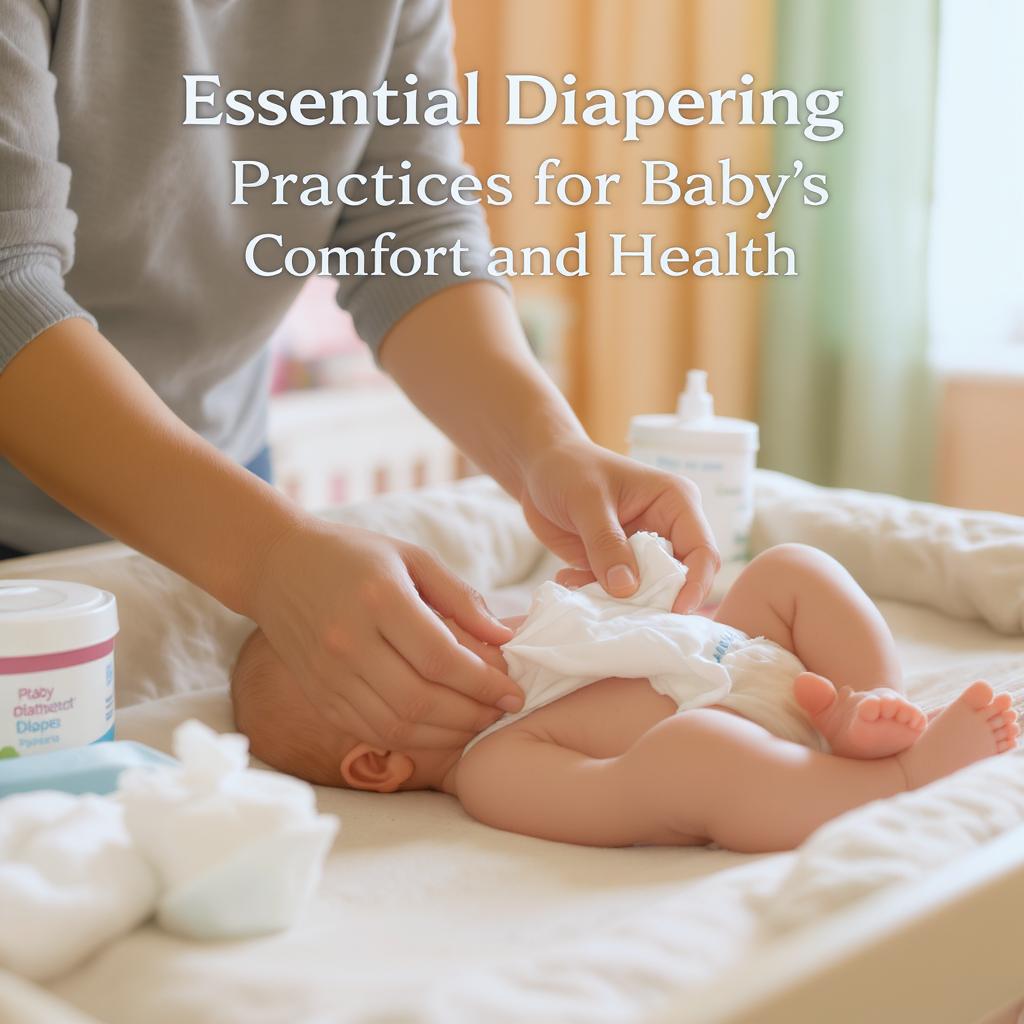Becoming a parent is a profound journey, filled with joy, new responsibilities, and a desire to protect your newborn. Among the crucial steps in safeguarding your baby's health is ensuring they receive the recommended vaccinations. These vaccines play a vital role in protecting your child from various infectious diseases.
Vaccinations: Your Child’s First Defense
Vaccinations are an essential part of your baby's healthcare routine, acting as a protective shield against serious illnesses. Newborns have developing immune systems, and vaccines assist in bolstering their defenses against diseases such as pertussis (whooping cough), measles, and polio. These vaccinations help your child build the necessary antibodies to fight infections effectively.
Community Immunity and Protecting Others
Vaccinating your child not only protects them but also plays a pivotal role in creating herd immunity, which helps prevent outbreaks. This communal immunity safeguards those who cannot be vaccinated due to medical reasons, like other children and vulnerable individuals. Staying informed about these advantages enables you to make well-informed decisions confidently.
A Commitment to Health and Well-being
By choosing to vaccinate, you're supporting the health of the broader community and contributing to a future where children can grow up healthy and free from preventable diseases. Vaccination is not just a personal decision but a communal act of care with widespread benefits.
As you embrace this new chapter of parenthood, remember you're not alone. Numerous healthcare professionals and fellow parents are available to offer guidance and support. Rest assured, these science-based decisions are key to securing a healthy future for your child.
The Vaccination Schedule: Laying the Foundation for Health
Your child's vaccination journey begins with a carefully structured schedule tailored to protect them from various conditions:
- Hepatitis B: One of the initial vaccines given shortly after birth, it protects against a severe liver infection. The CDC recommends the first dose within 24 hours of birth.
- Rotavirus: Administered orally to prevent severe diarrhea and dehydration, starting at 2 months of age.
- DTaP (Diphtheria, Tetanus, Pertussis): Protects against these diseases with the first dose given at 2 months.
- Hib (Haemophilus influenzae type b): Prevents illnesses like meningitis and pneumonia, starting from 2 months.
Your healthcare provider is a trusted resource to navigate this schedule, ensuring your child’s developing immune system receives optimal protection. Linking with credible sources like CDC guidelines provides both peace of mind and confidence in the vaccination process.
Through each appointment, you’re strengthening your baby's defenses and fostering a nurturing relationship with healthcare professionals, paving the way for a vibrant future.
Preparing for Vaccination Appointments: A Supportive Experience
Experiencing a mix of emotions before a vaccination appointment is natural. Typically, the visit will include a health check followed by the vaccine administration. It's your chance to voice any concerns and ask questions.
After the vaccination, your baby might experience mild side effects such as light fever or slight swelling. These are signs of the immune system building protection. Your healthcare provider can offer ways to manage these symptoms, focusing on your baby’s comfort and well-being.
To ease the process, bring comforting items like a favorite blanket or pacifier and dress your baby in easily removable clothing. Stay in open communication with your healthcare provider, ensuring any concerns are addressed, fostering a trusting partnership focused on your baby’s health.
Understanding and Overcoming Common Concerns
New parents often have questions about vaccinations. Here are evidence-based answers to common concerns:
- Immune System Overload: Research indicates a baby's immune system can handle many antigens. Vaccines are designed to work with, not overwhelm, the immune system.
- Fear of Side Effects: While vaccines may cause mild side effects, significant reactions are rare. The CDC emphasizes that the benefits of vaccination considerably outweigh these minimal risks.
- Vaccines and Autism: Extensive research, including studies by the WHO, shows no credible link between vaccines and autism.
Myths about natural immunity and vaccine necessity often surface. While natural infections provide immunity, they carry severe risks. Vaccines offer safe, effective protection. Diseases decline due to vaccination, not because they have naturally faded away. Increased outbreaks highlight the importance of maintaining high vaccination rates.
Embrace open conversations with your healthcare provider, ensuring your concerns are heard and addressed, helping build a mosaic of care, understanding that strengthens your parenting journey.
Accessing Trusted Resources
Informed decisions are powerful. Access reliable resources to bolster your understanding:
- CDC: Offers comprehensive information on vaccine schedules and safety.
- AAP: Provides guidelines on pediatric healthcare.
- WHO: Delivers global health recommendations.
- Vaccine Education Center at CHOP: Explains vaccine science in parent-friendly language.
- NIH: Offers in-depth research and studies on vaccines.
These resources support you in navigating the complex landscape of vaccinations with confidence, reinforcing choices made for your child’s future.
Post-Vaccination Care: Ensuring Comfort and Monitoring Reactions
After vaccinations, common side effects like mild fever or injection site tenderness are normal. Provide extra cuddles, ensure rest, and offer gentle soothing methods like warm compresses. If anything unusual arises, consult your healthcare provider, emphasizing their role as part of your support network.
Your vigilance in monitoring and tending to your baby reinforces a foundation of care, enriching your relationship and supporting their developing health.
These early interactions lay the groundwork for a trusting relationship with healthcare providers, enveloping you with guidance and encouragement.
Finding Support and Building Connections
New parenthood can feel overwhelming, but connecting with support networks can offer comfort and shared wisdom. Whether through local gatherings or online groups, these communities provide reassurance and shared experiences, enhancing your parenting confidence.
Engaging in these networks contributes to collective wisdom, nurturing your baby’s health alongside your well-being as a parent. Remember, this path is not solitary—it's enriched by support found within these nurturing communities.
Your participation builds shared understanding and solidarity, aiding in parenting decisions from daily care to broader concerns like vaccinations. Each interaction supports not only individual families but builds a collective legacy of care and wisdom.


















